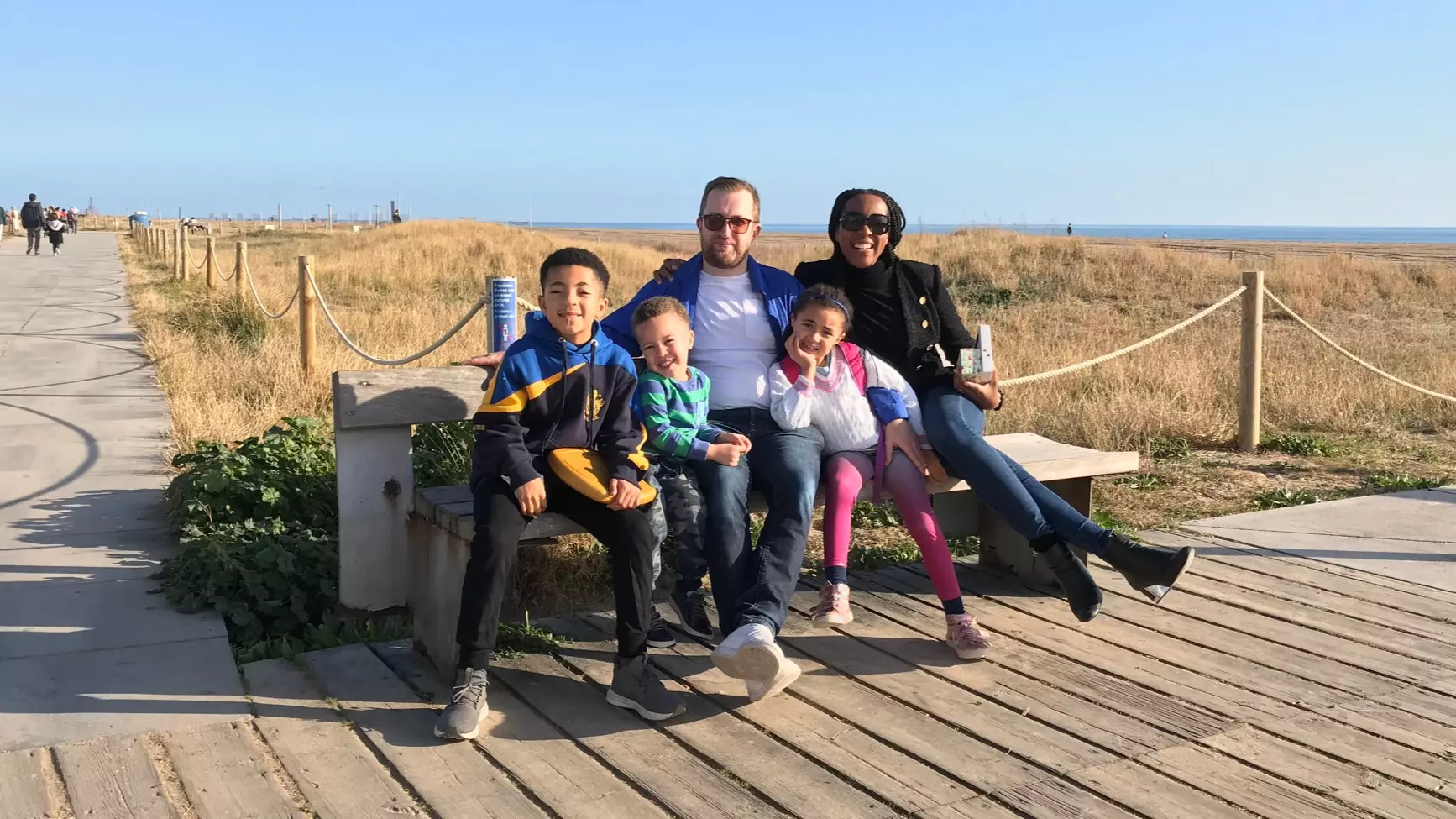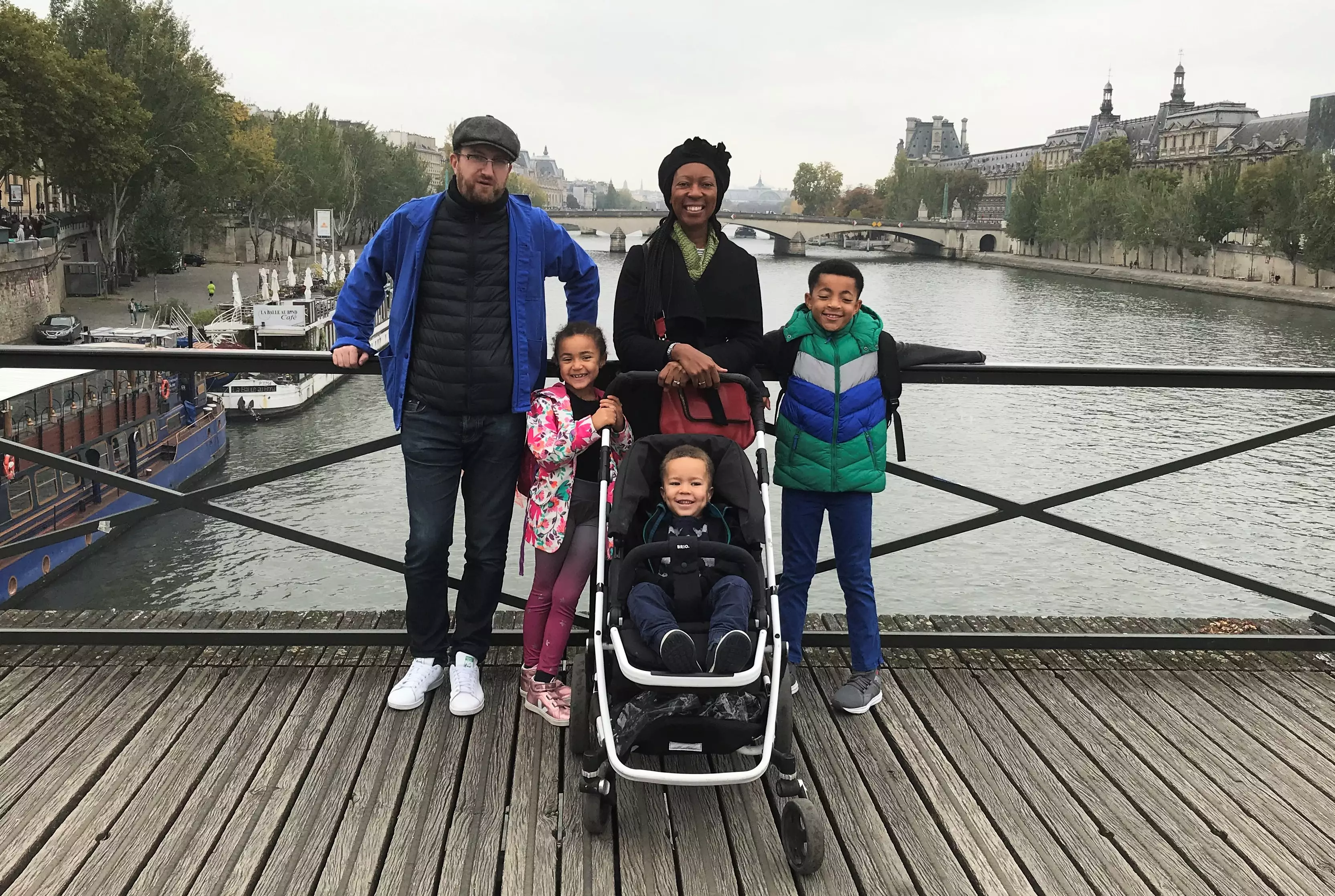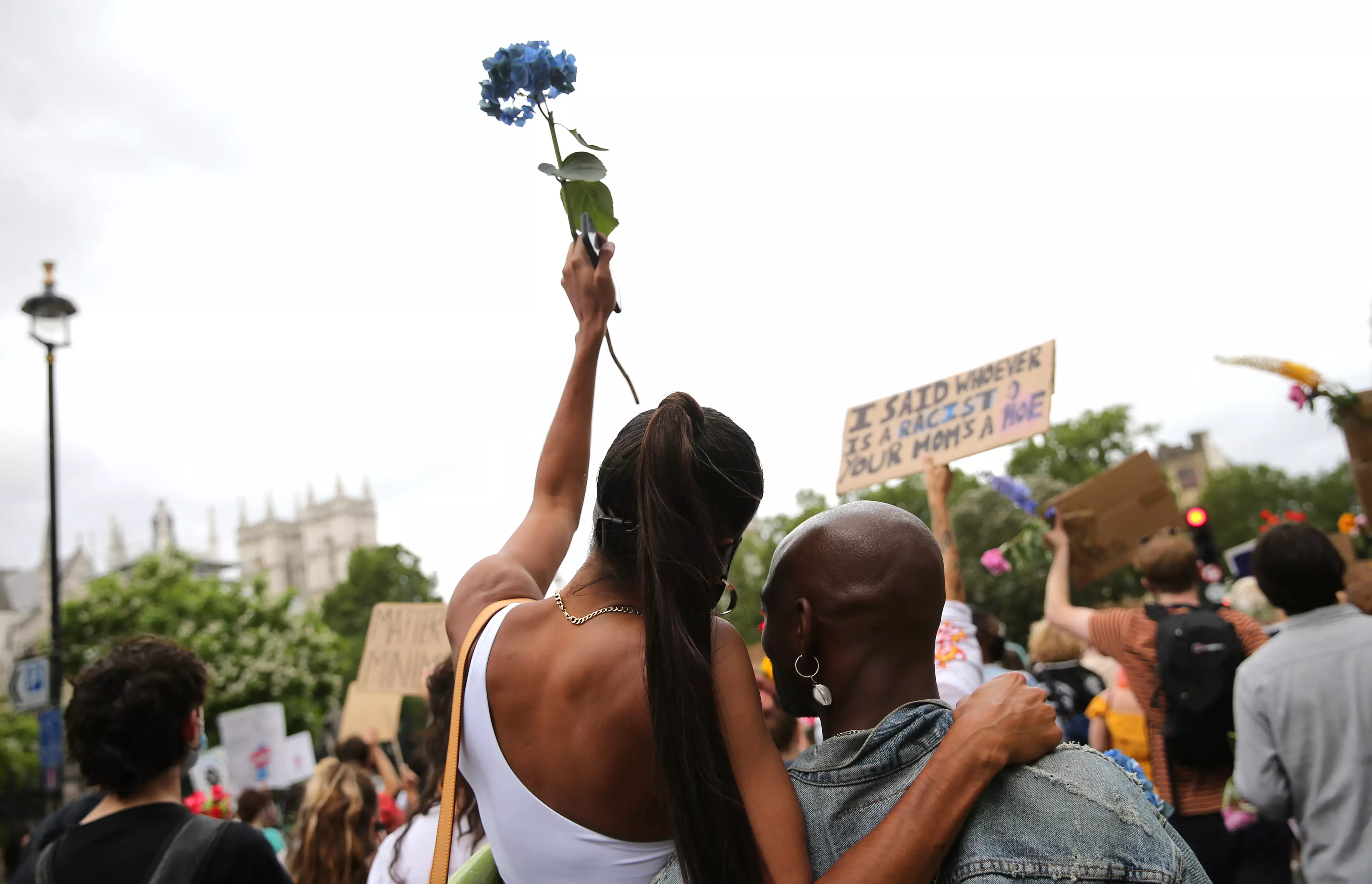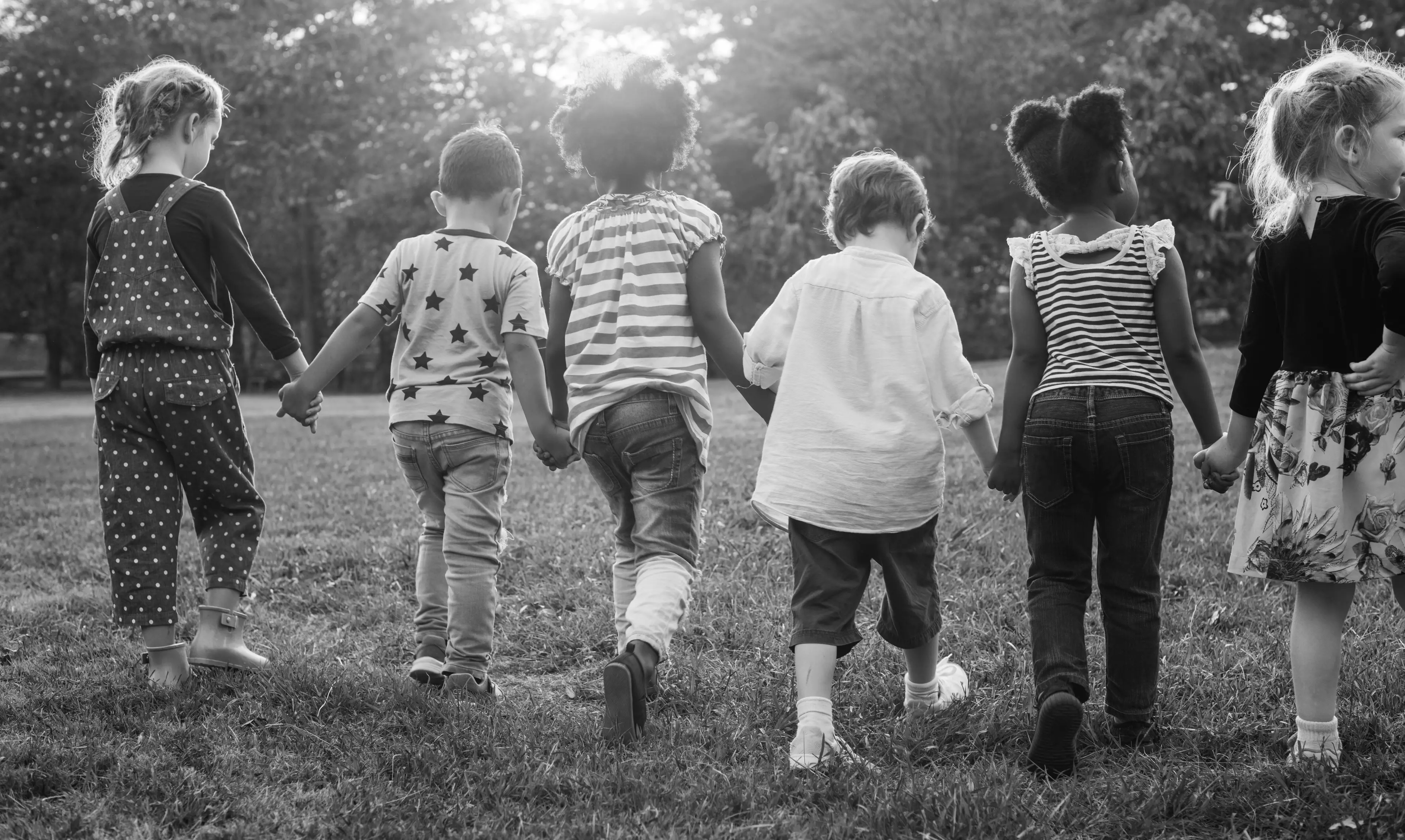
Words by Christabel Daugherty, 42, from London
Following the brutal murder of George Floyd in Minneapolis that sparked worldwide protests, I wondered how to explain this to our three dual-heritage (black Zimbabwean and white British) children.
My husband and I had tried to explain this incident but it had resulted in my children being confused, only hearing the words 'black' and 'white'. We realised we needed to frame our explanation carefully and sensitively.
Advert
Later, my eldest son, who is nine, shut me out of their bedroom screaming 'No girls allowed!' This was my opportunity to explain 'segregation'; did he know that excluding his sister was 'sex discrimination', I asked.
I reminded him of our earlier conversation about George Floyd, about race discrimination. It's really difficult to have complex conversations about such things especially in a way that children can grasp (mine are nine, seven and four) but every family needs to have them.

So where do we begin? Change starts behind closed doors, with institutions educating staff on race and training them on topics such as unconscious bias.
Advert
With predominantly white teachers being urged to teach diversity and tolerance in all aspects of learning, it's important to have conversations about fairness with children and to think very carefully about how we act and broach the topic of race and discrimination with them. It starts with you and me.
None of us will get it right all the time, but it's no longer good enough not to try. Here are my tips for doing your best to raise race-conscious kids.
Lead a diverse life
Lead by example and explore other cultures with your children. You're on tablets and phones anyway, so Google it. Listen to music from around the world. Be curious about language. Watch films with subtitles. Visit local shops, ask the shopkeepers what the different foods are, and cook these in your homes. If you can champion a chicken curry, you can sample jerk chicken or jollof rice. Being curious about little things will foster a curiosity in your children about the world at large.
Advert

Be frank about Britain's colonial past
The truth is Britain has a chequered colonial past but is now more culturally diverse and better for it. Equating 'British' with 'white' wilfully ignores nearly 2,000 years of colonisation by Romans, Saxons, Vikings, Normans and Dutch protestants before 'Great Britain' began colonising other parts of the world. It ignores people like Ignatius Sancho, who was here over 250 years ago, and black Brits that fought in the two World Wars.
It leads to the ignorant questioning of non-white citizens about where they are from and the frustrating follow-up: 'Yes, but where are you really from?'. Teach children to distinguish between citizenship and heritage. People can be more than one race, come from more than one place and be more than one thing. If you can't be bothered to seek the truth, what example does that set?
Advert
Hold schools to account
We trust schools to educate our children, yet we don't question the content of their learning. Do you know what history your children are being taught? The Covid-19 lockdown has been enlightening about showing us how much our children do and do not know. Schools have a tremendous impact on children and often have a more direct influence over their learning than parents do.
Yes, ask about numeracy and literacy, but also about diversity and check that history is being taught honestly. If the same version of history is being taught in our schools as it was 30 years ago, how can we expect perspectives to change?

Advert
Acknowledge where people come from
It still amazes me when people refer to Africa as a country. It's offensive and lazy, and it shows an ignorance that is unacceptable as it leads children to believe that all black people are the same or come from the same place. More worryingly, that they don't belong here. Be clear and accurate about people's heritage (and make sure your children are too).
Use simple stories to illustrate - but call discrimination by its name
As a parent you are best placed to explain things to your children in ways they understand. Use play to talk about fairness in a way that they understand but use the complex words to articulate it. Call discrimination by its name so that when children hear it in the news or encounter it in their daily lives, they recognise it and can call it out. Children can take big words. If you don't teach them, someone else could explain it to them in a way that is confusing and incorrect.
Teach your children to be brave
Teach them to understand their privilege and stand up to injustice when they see it in their everyday lives. It is easier to be heard when those surrounding you speak out, and speak up for you.
There are reasons for hope. During a school trip, a white girl jokingly told my son that his skin was 'the colour of poo'. Quickly, three white children in his group rounded on the girl, telling her it was wrong and that she should not say things like that. I knew this girl came from a good home, but I was still initially shocked.
When I later asked my son what had happened and how he felt, he admitted he had been angry and told her off, but that it felt good because his classmates had also stood up for him. It was a simple childish exchange and the outcome made it easy to forgive. It gave me hope that things can and will get better as their generation grows up.
Very young children looking at a group of people, rarely see colour as a distinguishing feature. But as they grow, they somehow acquire a multitude of ideas about race. Parents, let's take responsibility for this. Let's teach our children to appreciate these differences and celebrate the wealth that comes from diversity.
I tell my children 'Remember, you're not half of anything, you're two of everything'.* I truly believe this.
*Taken from The Sympathisers by Viet Thanh Nguyen
Featured Image Credit: Christabel DaughertyTopics: Black Lives Matter, Children, Life News, Life